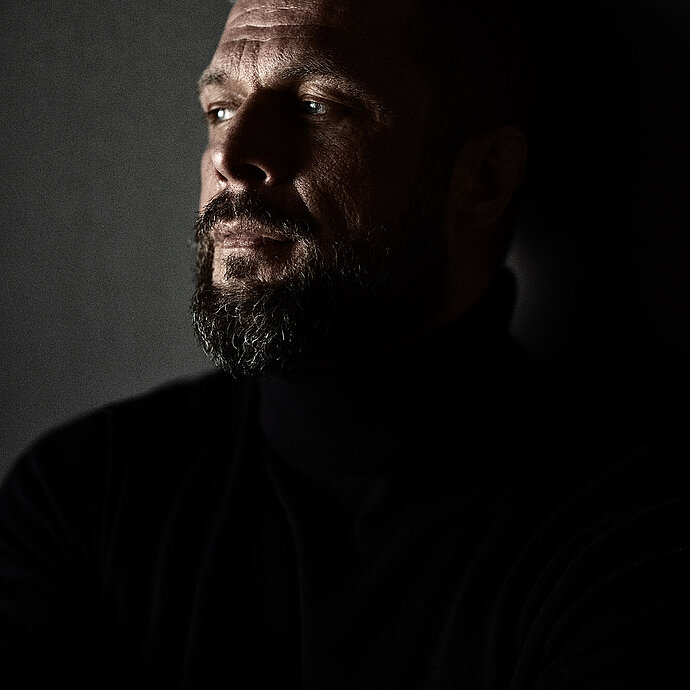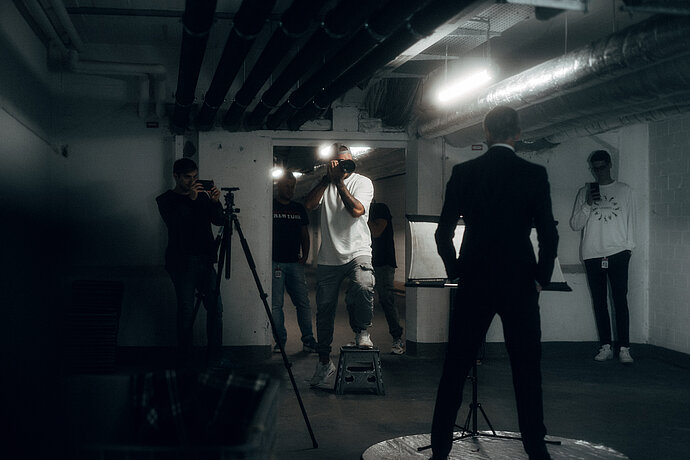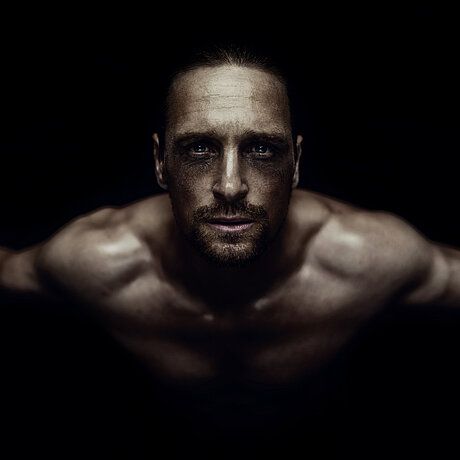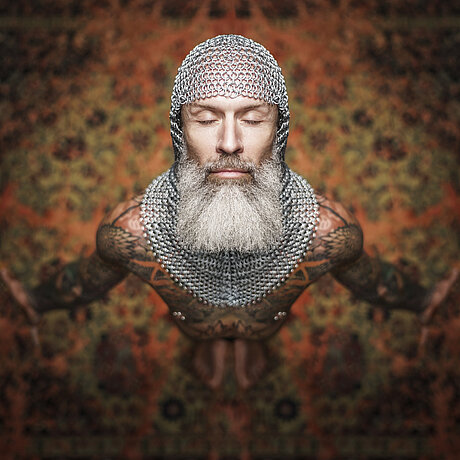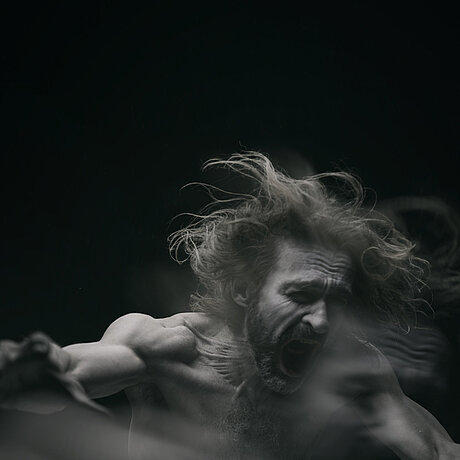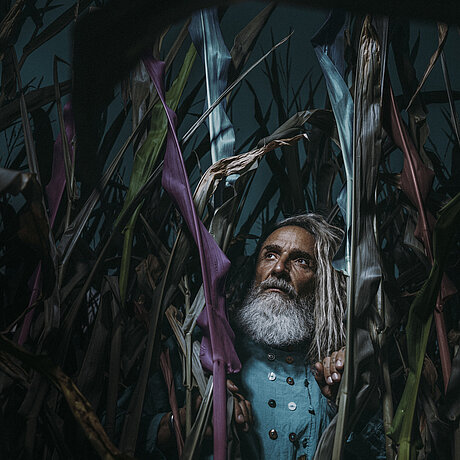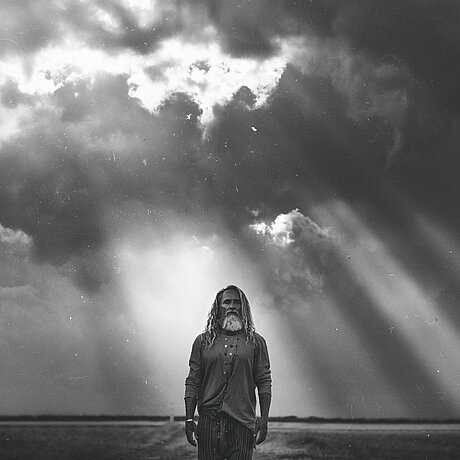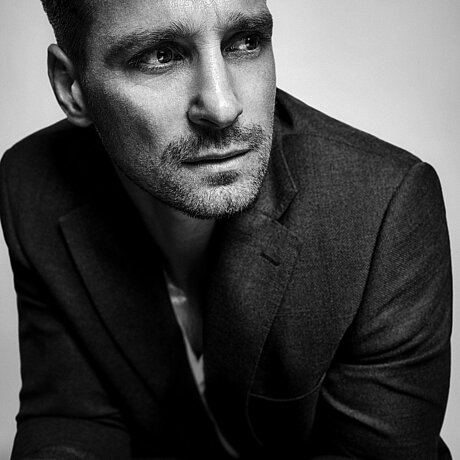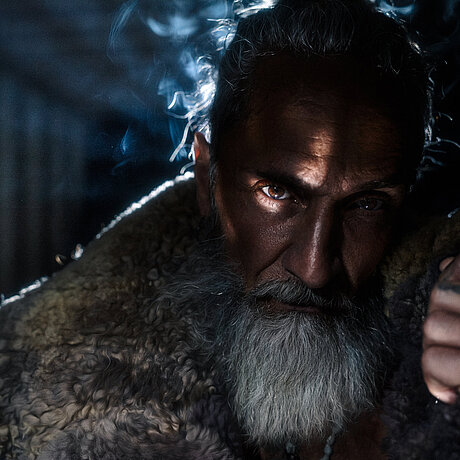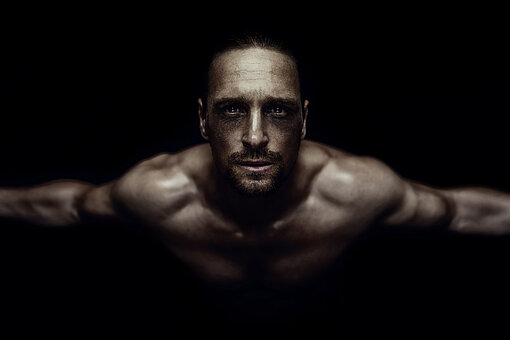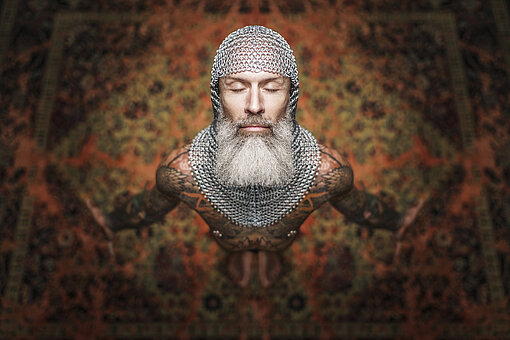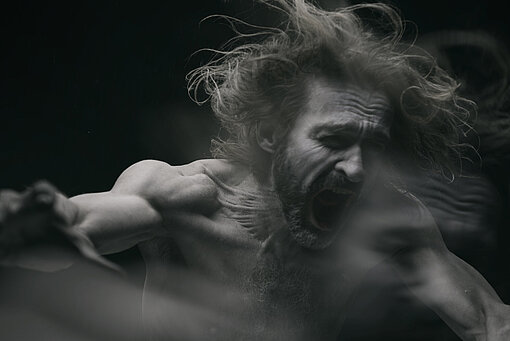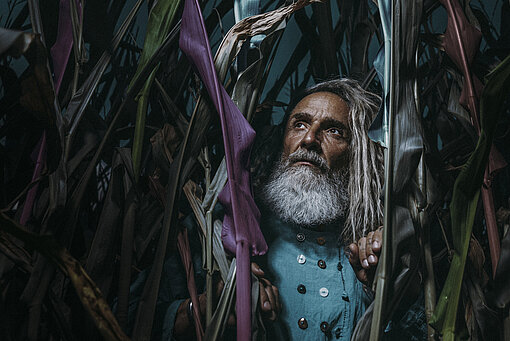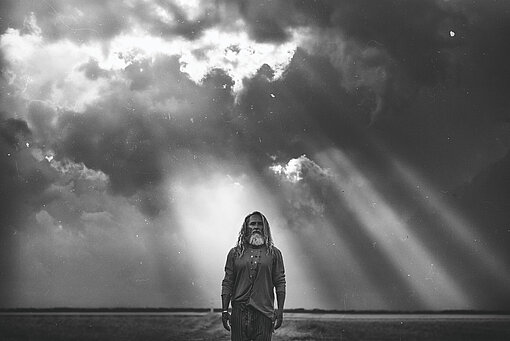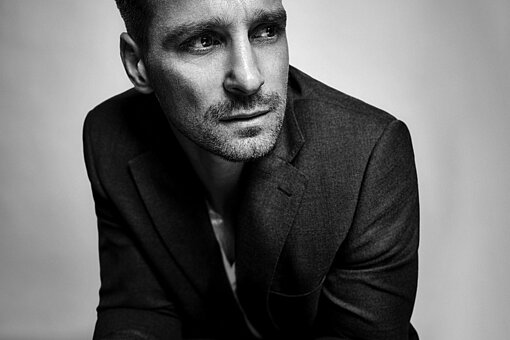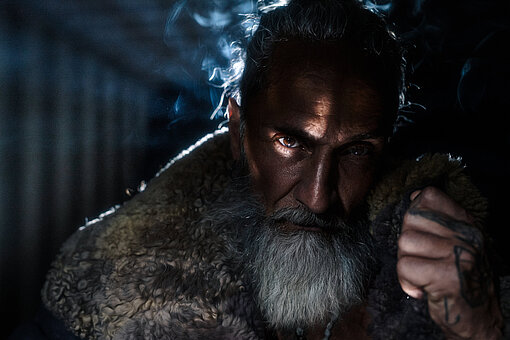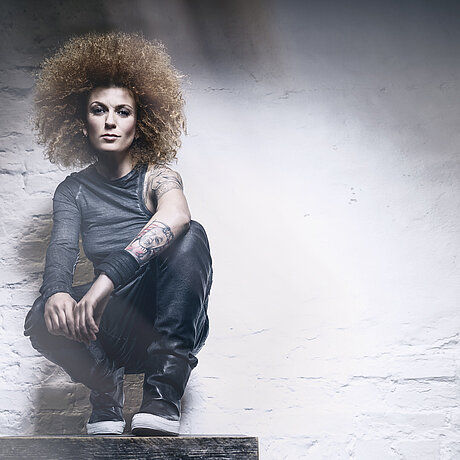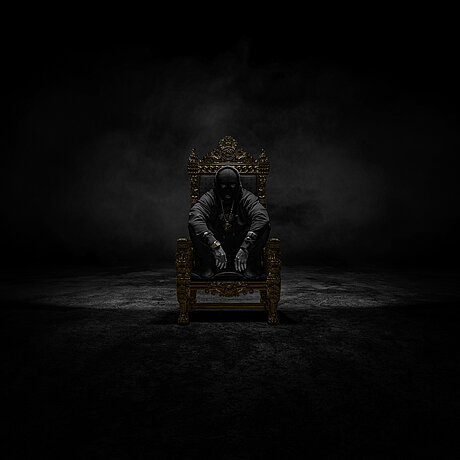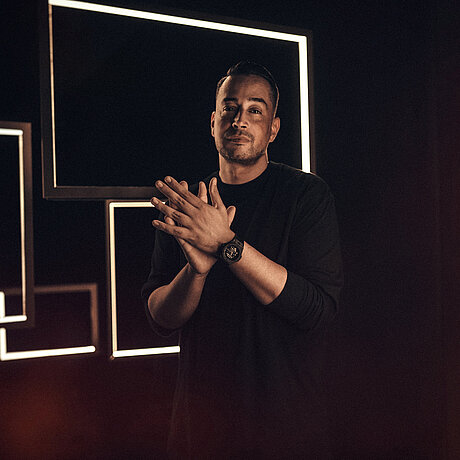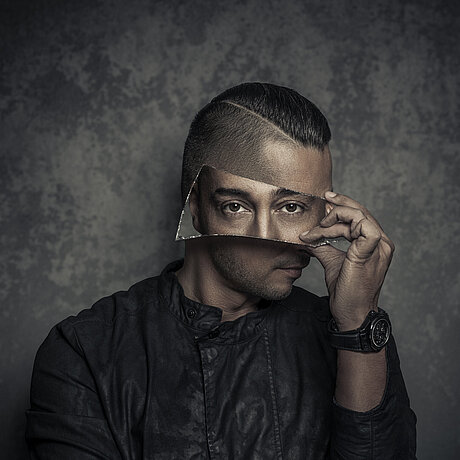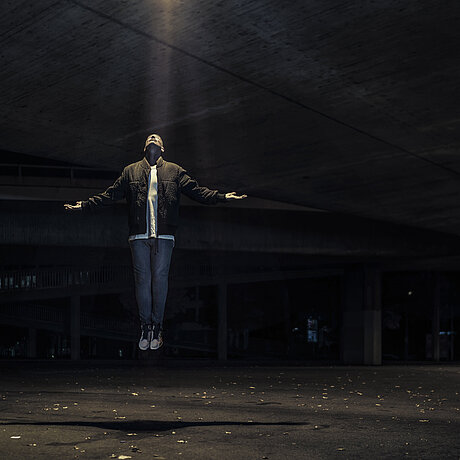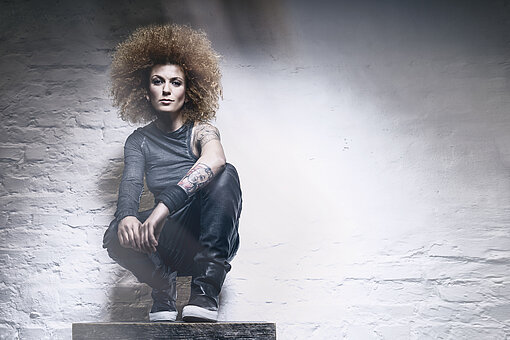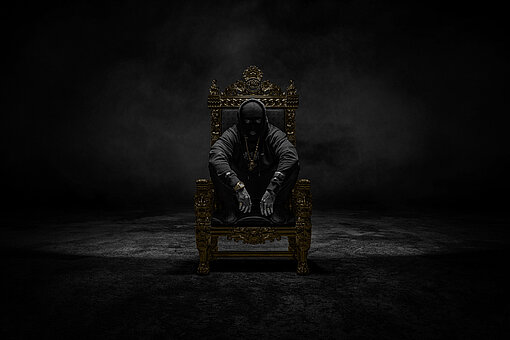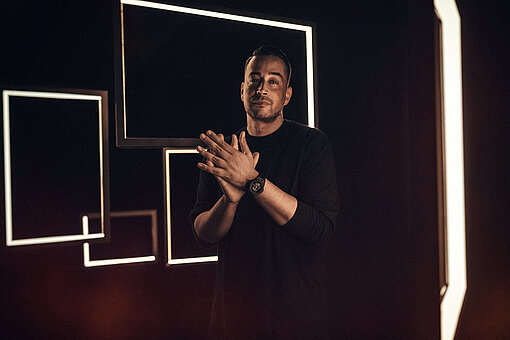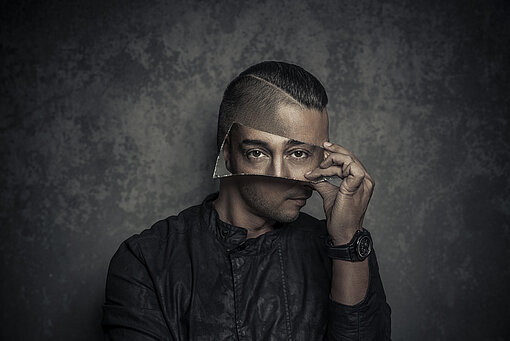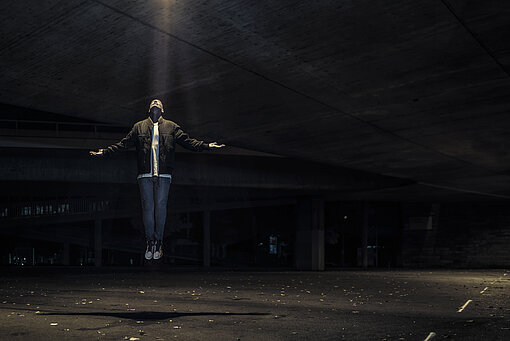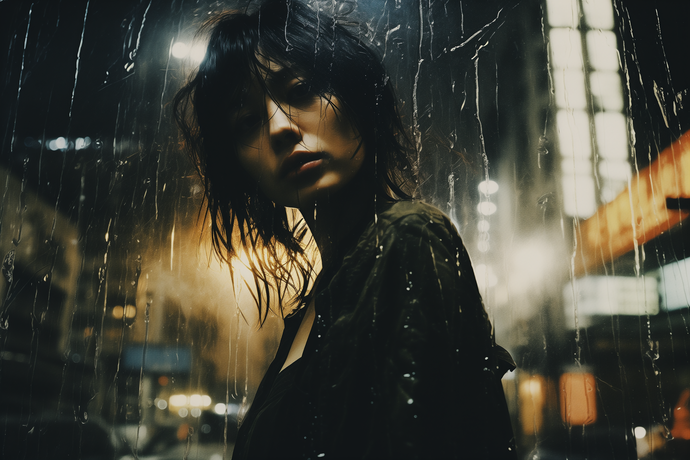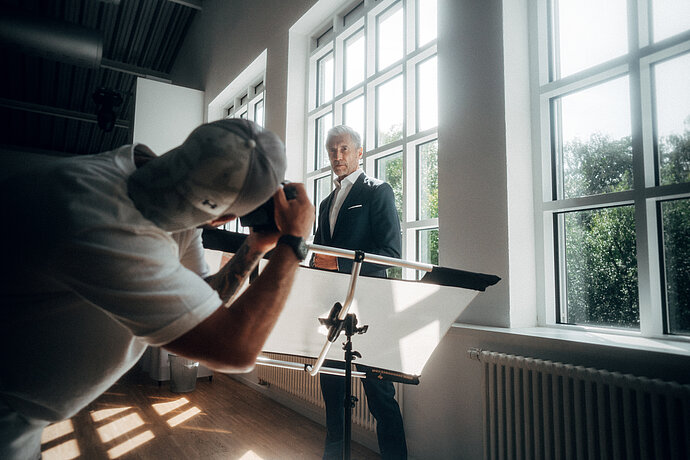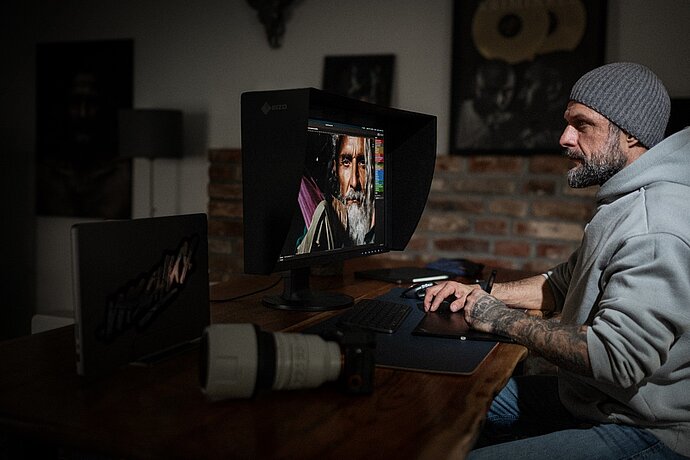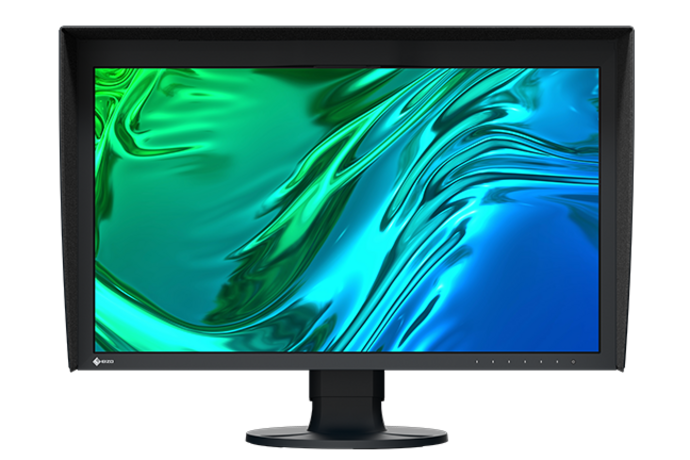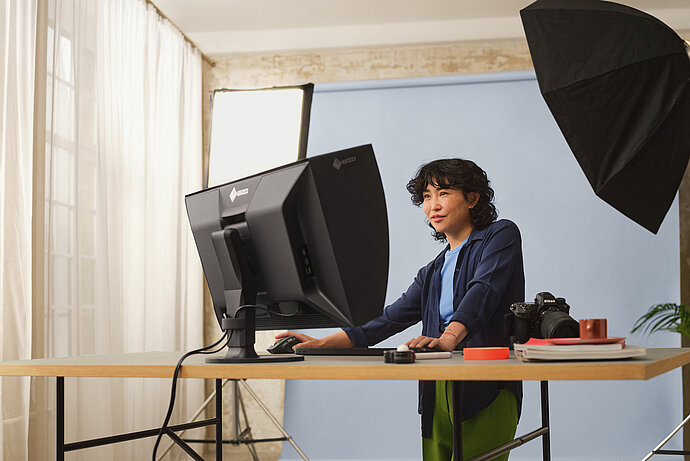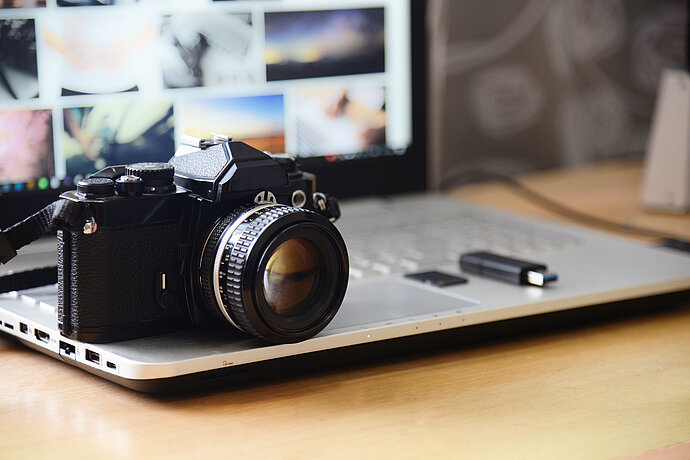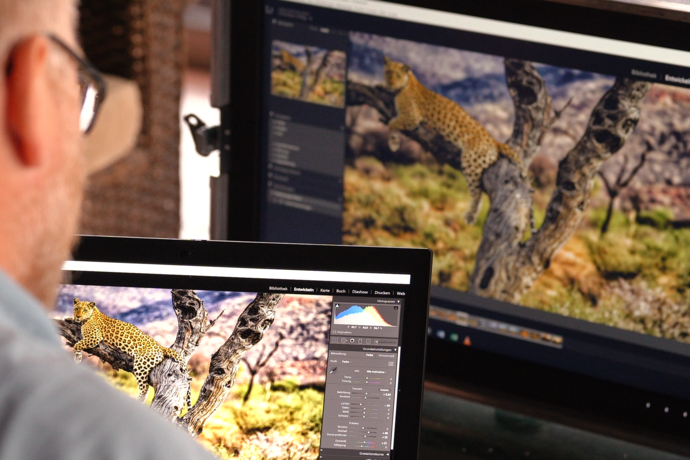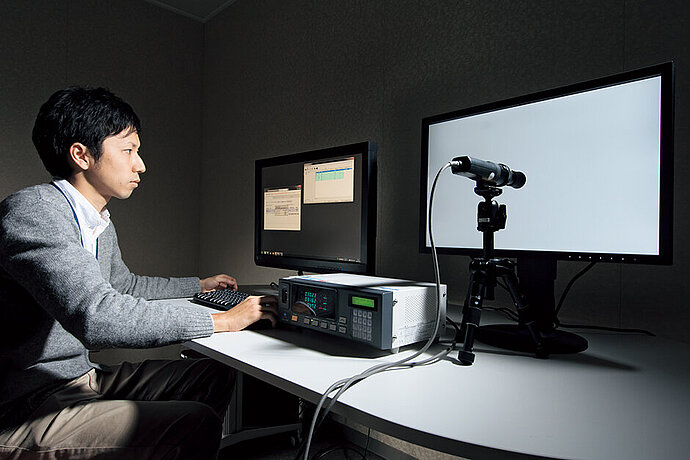Robert Maschke's hauntingly dark "#MSCHKY" look is popular with musicians, actors and comedians. We met the German photographer and asked him how he found his style, how AI is changing the market for professional images and what role the ColorEdge CG2700X plays in his image editing workflow.
ColorEdge Case Study
Who is actually #MSCHKY, Robert Maschke?
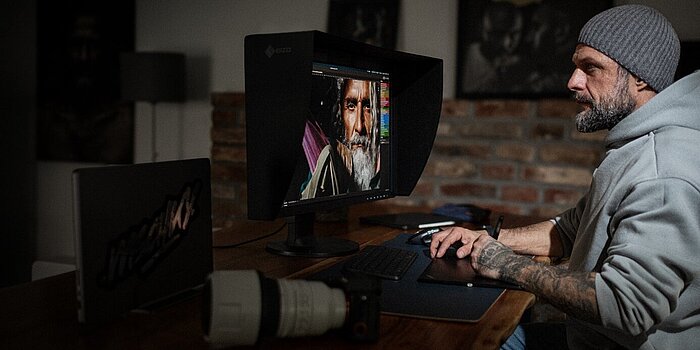
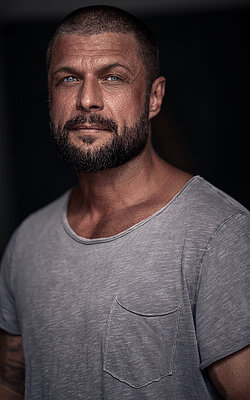
Robert Maschke has always been creative, unconventional and restless. Traditional vocational training was out of the question for him. After working in a fashion store with an associated fashion label, Maschke founded one of Germany's first eBay agencies after completing his civilian service. During this time, he discovered photography as a form of artistic expression. "I had my first publication in 2008. This relatively small picture was an important affirmation for me at the time," Maschke recalls. This was followed in quick succession by further publications, including large-format ones.
Maschke made the decision to make photography his profession and looked for an agency. His first commercial assignments followed. "I quickly realized that, in addition to the creative process of taking photos, the job of a commercial photographer is often to make the shoot possible in the first place with a budget that is usually too tight. That also suited me," explains Maschke. And his enthusiasm for digital image processing since the 1990s has also paid off: to this day, he always handles the post-production of his images himself.
Business was going well, Maschke now had good customers and an impressive collection of photographic equipment. But artistically, he felt incomplete and was himself oversaturated by the prevailing zeitgeist of bright, ultra-perfect glossy people photos.
Artistic signature, born in a parking garage
In order to get out of his creative crisis, Maschke set off with deliberately minimalist equipment consisting of a DSLR and 50mm fixed focal length and drove to Cologne city center with a friend. Once there, it was raining cats and dogs and the frustrated Maschke was already on his way back when, following an impulse, he turned into the nearest parking garage. At the time, Maschke had no idea how influential this spontaneous decision would be. Today he remembers: "I then photographed a friend in this run-down parking garage under technically absolutely borderline lighting conditions. After the shoot, I didn't feel like I had captured anything particularly groundbreaking." That's why he only took a look at the resulting pictures days later, but then quickly realized that he had succeeded in taking some very expressive portraits in the parking lot. From this, he derived two style-forming insights: less technology is more and dark, unglamorous locations suit him, and with suitable image processing, something was created that Maschke wanted to pursue further. The publisher Galileo Press (now Rheinwerk) also recognized that he had found something exciting and produced a first video tutorial with Maschke in the publisher's garage in 2014.
Creatives for creatives
Maschke had found his own signature with his "#MSCHKY style" and had obviously hit a nerve. Collaborations with Foto-TV, Adobe and Sony developed and Maschke's mixture of technical excellence, stylistic independence and creative post-production made him the first port of call for many stage artists within just a few years. The results are spectacular and sometimes polarizing productions such as the cover of the album "Leben II" by rapper Azad, with which he reached number one in the charts after a break of almost six years. It shows a baby sleeping peacefully in an embryo position surrounded by black snakes. "We spent a long time researching whether we could photograph real, ideally actually black snakes for the motif. Of course, we wanted to photograph the baby separately," Maschke recalls with a wink. However, when it became clear that such snakes do exist, but that they would eat each other if they were put together, he decided to only photograph the baby in real life and have the snakes rendered completely digitally. In 2016, this was expensive and time-consuming - AI was not yet an issue at the time. "That was a really great time," Maschke remembers fondly. "There was plenty of room for creativity and budgets to implement it."
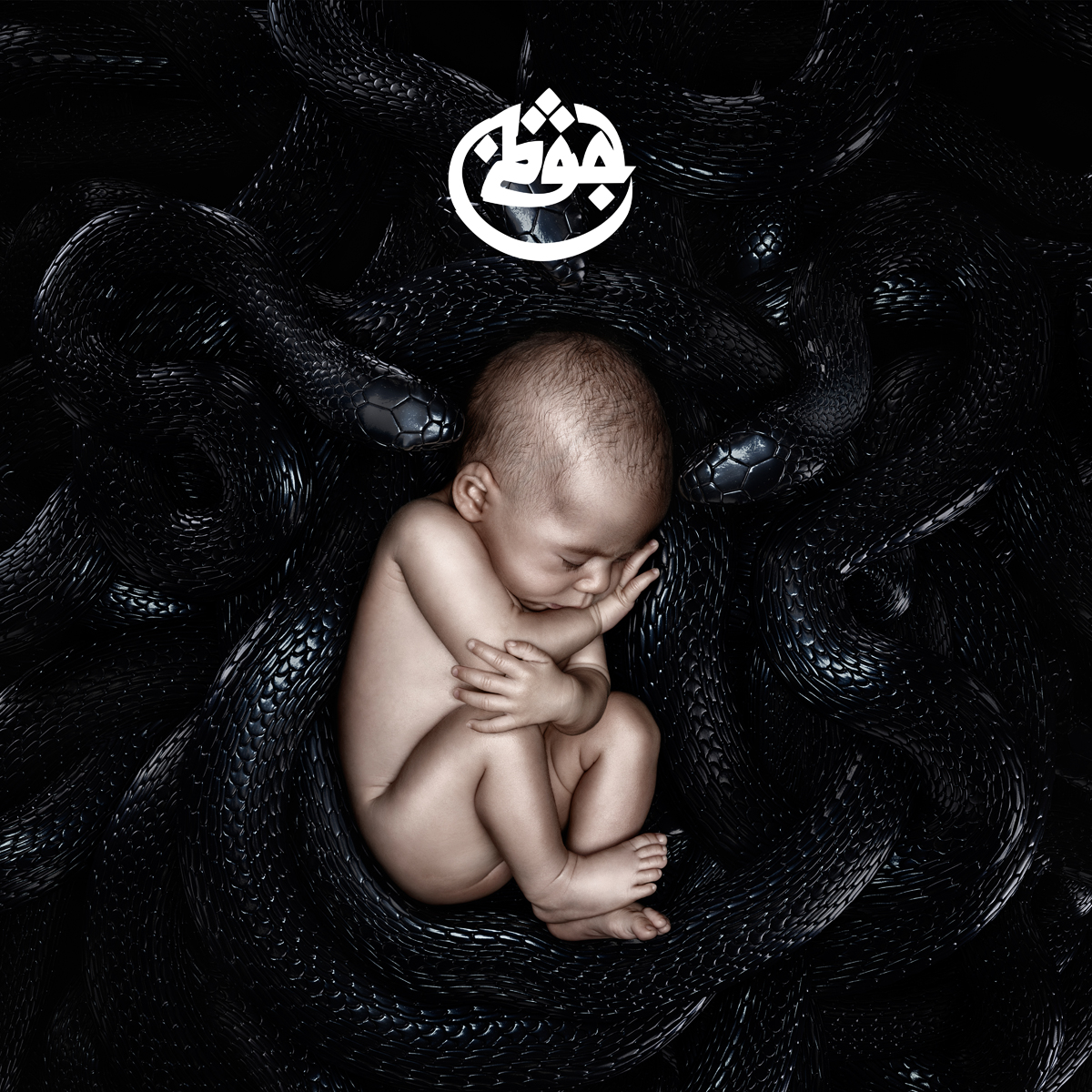
Streaming and AI are dramatically changing the order situation
"Unfortunately, things are often different nowadays," Maschke admits and explains: "Today, streaming is the main focus for many musicians. Albums are becoming less and less important. Instead, the algorithms of the streaming services want to be kept happy by the regular release of individual songs at short intervals. For the small thumbnails on streaming services and social media postings, many artists no longer take elaborate photoshoots, but instead use their smartphone and, increasingly, images generated by artificial intelligence (AI)."
AI - curse or blessing?
Maschke has a mixed view of the rapidly developing spread of AI: "The technology nerd in me is absolutely fascinated, I'm also trying it out and trying to stay up to date. AI-based functions in image editing, such as those offered by Photoshop, make my work noticeably easier." He is also fascinated by fully AI-generated images. At the same time, in an already strained demand situation, AI images are leading to a further painful slump in demand for professional photography, which Maschke is also feeling.
Way out: truthfulness and reality
Maschke has therefore expanded his photographic focus back to classic advertising photography. He regularly photographs campaigns for a major household appliance manufacturer or employee portraits and visuals for the employer branding measures of large companies. The #MSCHKY style is not required here, but Maschke's talent for organizing shoots and giving the images exactly the look the client needs in post-production is. "Truthfulness and authenticity are required here. It's about showing real employees and real situations. This cannot be replaced with stock photos or AI-generated images. This is why there will also be a market for real photography in the future," Maschke is certain.
ColorEdge CG2700X at the heart of image processing
As contradictory as the two poles of Maschke's work may seem at first glance - a clear signature in style, lighting and post-production on the one hand and briefing-oriented advertising photography on the other - one thing is always indispensable for Maschke: an excellent monitor. That's why the ColorEdge CG2700X from EIZO forms the heart of his image processing set-up. "The CG2700X does exactly what it's supposed to: it shows me my image files exactly as they are. That may sound banal, but anyone who has ever worked closely with image editing knows that this is not a matter of course, quite the opposite," says Maschke, explaining his choice of monitor, adding: "My ColorEdge works just as perfectly with my MacBook Pro as it does with my Windows workstation." Maschke quickly connects the MacBook Pro to the EIZO via USB-C and the monitor signal is transmitted, the MacBook is charged and all devices connected to the monitor's USB hub are linked to the MacBook. The MacBook Pro is even connected to the wired network via the LAN port integrated in the monitor. The monitor thus replaces a docking station. Maschke's Windows workstation is connected to the CG2700X via HDMI and USB, whereby the monitor's integrated KVM switch ensures that the graphics tablet and webcam connected to the monitor's USB hub are always automatically linked to the active computer when the input signal is switched on the monitor. "This is really super practical," says Maschke happily.
Excellent image quality and automatic calibration
When asked about the most outstanding features of his monitor, Maschke has two clear answers: "On the one hand, it's the crisp, excellent image display, which is homogeneous right into the corners of the picture, and the large color space. On the other hand, the color management is really extremely fast and convenient thanks to the built-in calibration sensor," says Maschke happily. In order to cope with different lighting conditions at the image processing workstation, Maschke has created individual calibration targets for different lighting conditions, which he can switch with a quick flick of the wrist on the monitor or in the taskbar of his computers. He has also programmed his ColorEdge CG2700X to automatically recalibrate all calibration targets once a month at night.
This allows Maschke to concentrate fully on his actual creative work on the computer, without having to worry about technical maintenance work on his digital darkroom, and still has the certainty that the images he delivers really do look the way he intended - regardless of whether they bear his unmistakable #MSCHKY signature or look exactly as briefed by the customer.
The CG2700X does exactly what it is supposed to do: it shows me my image files exactly as they are. That may sound banal, but anyone who has ever worked closely with image processing knows that this is not a matter of course, quite the opposite.
Robert Maschke
Photographer
Robert Maschke
Robert Maschke is a Cologne-based photographer specializing in artistic portrait photography, commercial photography and fine art. With his intense and expressive portraits, he has gained attention in the scene, which regularly leads to collaborations with renowned names in the music industry. Cooperation partners such as Sony, Adobe and Hensel also appreciate his creative and technically sophisticated work.
Website | Instagram Robert Maschke Photography | Instagram ARTnique
